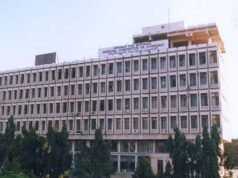Hyderabad: Researchers at BITS Pilani Hyderabad have developed a smart bandage capable of not just killing infection-causing bacteria but also visually signalling its presence without the use of traditional antibiotics. The study, authored by Vaishnavi N, junior research fellow, Ramakrishnan Ganesan, professor, department of chemistry, and Jayati Ray Dutta, professor, department of biological sciences, was published in ACS Infectious Diseases.“Infections at wound sites are often difficult to detect early, especially in chronic or deep wounds. Delayed diagnosis can lead to prolonged healing, the spread of infection, or even sepsis. The newly developed wound dressing addresses this issue using a multi-layered design,” Dutta told TOI.The base layer of the bandage is made of special fibres coated with silver, which kills bacteria without using antibiotics. On top of that is a gel layer that acts like a sensor. If the wound gets infected, bacteria release certain substances that move into the gel, causing it to change colour. This colour change is an easy way to tell that there’s an infection.“Our dressing is designed to be proactive,” said Ganesan. “It simultaneously kills bacteria and alerts clinicians or caregivers about the onset of infection. And it does so without relying on antibiotics, which is key in the fight against drug-resistant bacteria.”In addition to the smart dressing, the authors also developed a user-friendly colour analysis application that enables instant infection assessment by analysing a simple photograph of the dressing. The technology combines materials science, microbiology, and colorimetric sensing into a single platform. It functions without the need for complex equipment or laboratory processing, making it particularly well-suited for bedside care, home use, and resource-limited settings.The team also conducted animal trials in mice and is now in contact with hospitals to conduct human trials. As the IoT bandage needs to be tested topically, the team stated that they only require ethical clearance and are already in contact with hospitals to obtain patients for testing.They said that the bandage should be available in the market by early next year, as they also have a firm interested in buying the solution and are waiting for technology transfer. The cost of the bandage should be about Rs 10 to Rs 20, they added.The department of science and technology supported the project. It can be used to treat diabetic ulcers, post-surgical wounds, and burns, among others.






